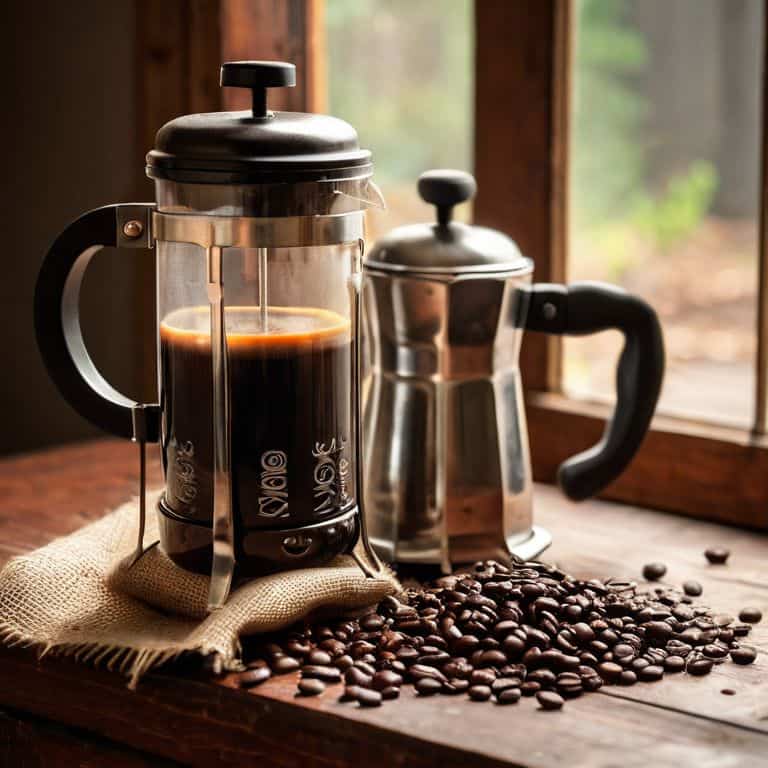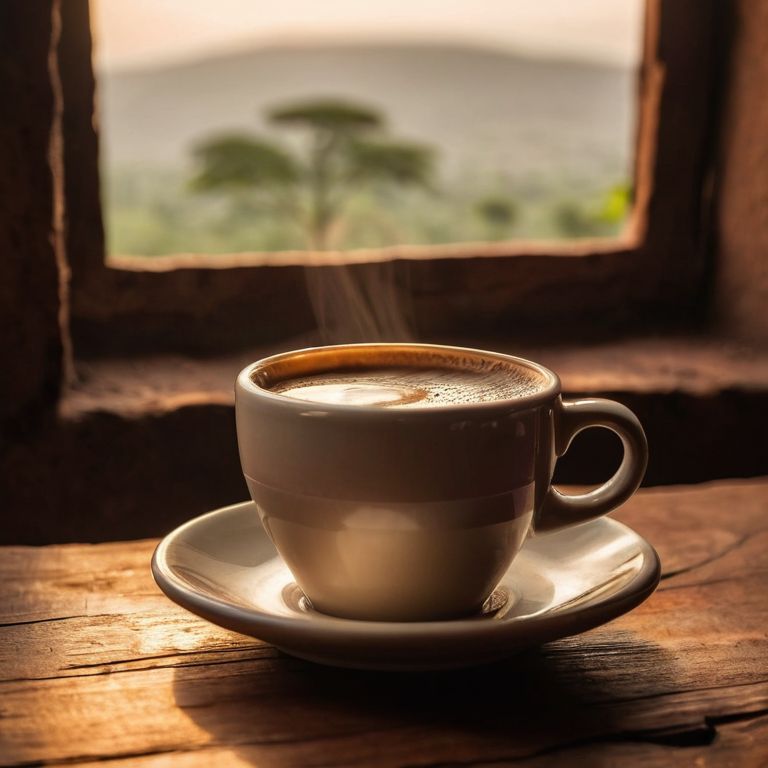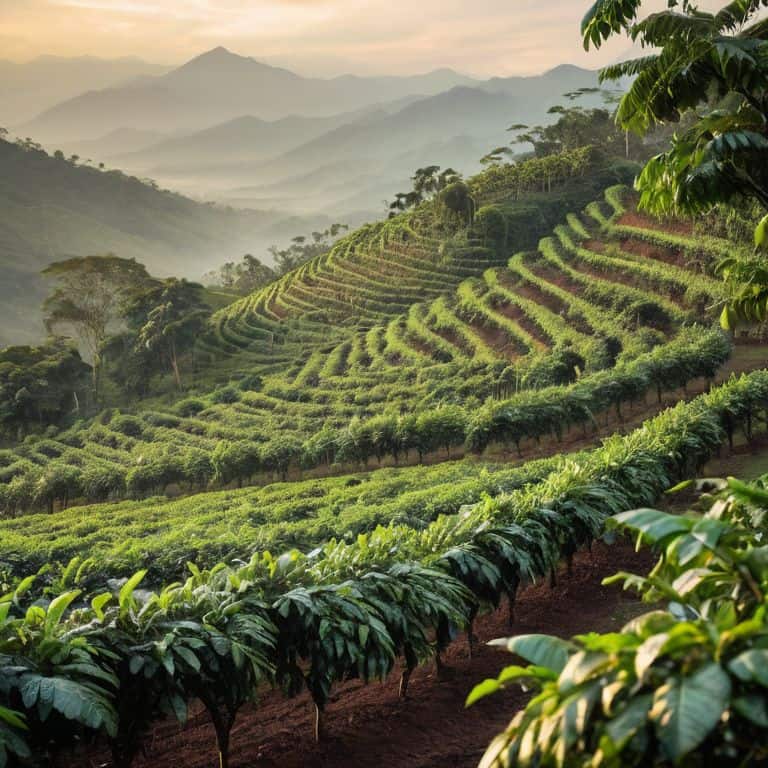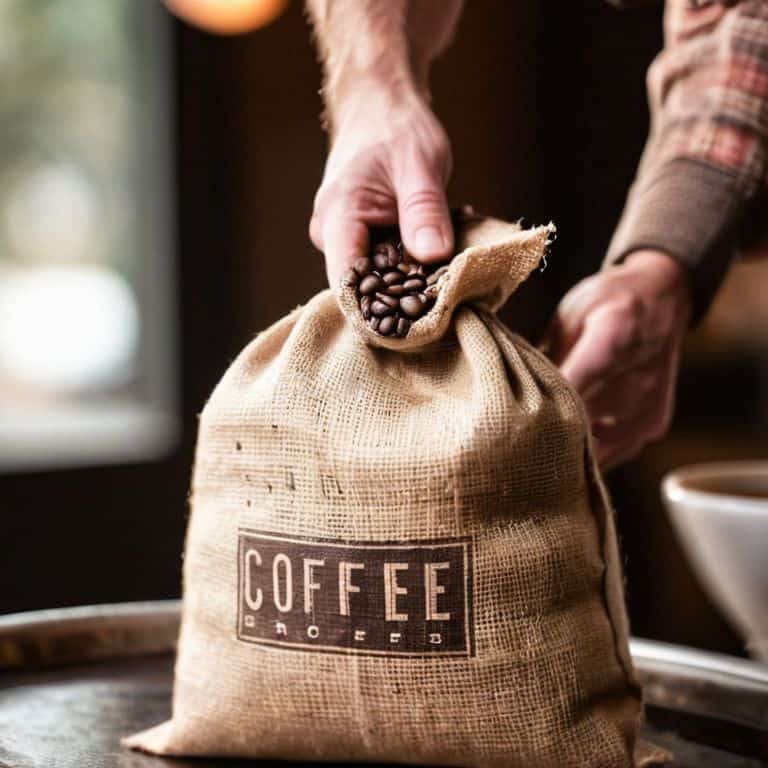As I sit here, surrounded by maps of coffee-growing regions and the faint aroma of my latest home roasting experiment, I’m reminded of the common myth that best coffee beans for french press are all about the roast level. But the truth is, it’s not just about how dark or light the beans are – it’s about the story behind them. I’ve spent years working directly with coffee farmers in Latin America and Africa, and I’ve learned that the real magic happens in the terroir, where the unique combination of soil, altitude, and climate gives each bean its distinct character.
In this review, I promise to cut through the hype and share my honest, experience-based advice on finding the best coffee beans for french press. I’ll take you on a journey to the highlands of Ethiopia, the mountains of Colombia, and other hidden gems, where I’ve discovered exceptional single-origin beans that will elevate your French press game. My goal is to connect you with the origin of your coffee, to help you appreciate the hard work of coffee farmers, and to guide you in selecting beans that will make your taste buds sing. So, let’s embark on this journey together, and uncover the secrets to brewing the perfect cup with the best coffee beans for French press.
Table of Contents
- Koffee Kult's Ethiopian Yirgacheffe: At a Glance
- First Impressions Design
- Key Features in Action
- Real World Performance
- Comparison With Alternatives
- Who Is This Product for
- Value for Money Final Verdict
- Unlocking the Perfect Cup: 5 Essential Tips for Choosing the Best Coffee Beans for French Press
- Key Takeaways for the Best Coffee Beans for French Press
- The Heart of French Press
- The Final Verdict
- Frequently Asked Questions
Koffee Kult's Ethiopian Yirgacheffe: At a Glance
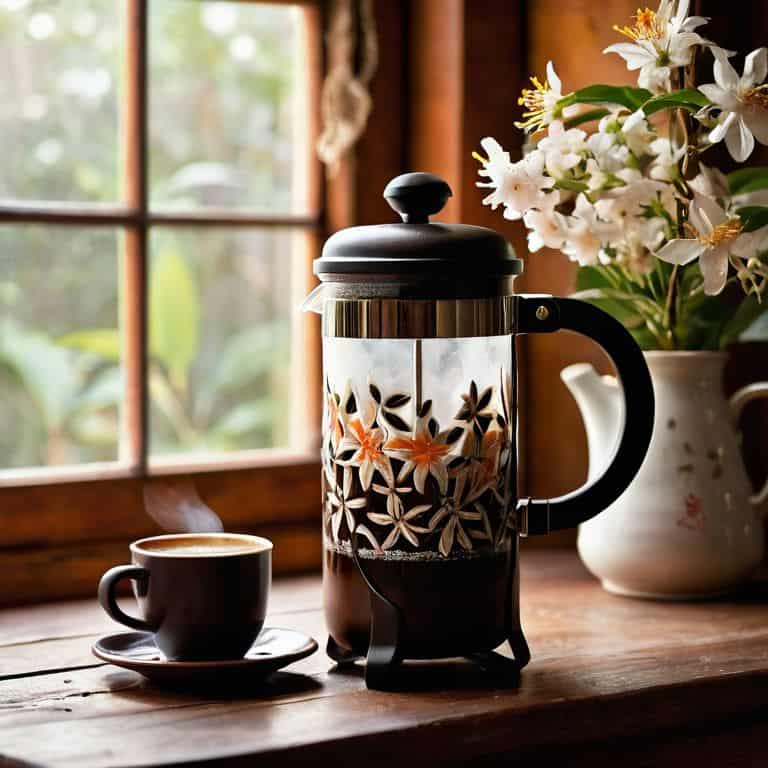
Koffee Kult’s Ethiopian Yirgacheffe offers an exquisite balance of floral and citrus notes, making it a standout choice for French press enthusiasts seeking a nuanced and refined coffee experience.
Overall Rating: 4.7/5 Stars
Key Specifications
- Single-origin, small-batch beans
- Washed processing method
- High-altitude, heirloom varietals
What We Liked
- Delicate tea-like body with hints of bergamot and lemon
- Exceptional clarity and nuanced flavor profile
- Sourced from sustainable, environmentally conscious farms
What Could Be Better
- Can be overly delicate for those who prefer a bolder cup
- Higher price point due to small-batch, specialty sourcing
The Bottom Line
Verdict: For those willing to invest in a truly exceptional cup, Koffee Kult’s Ethiopian Yirgacheffe is the epitome of artisanal coffee, worthy of its premium price.
First Impressions Design
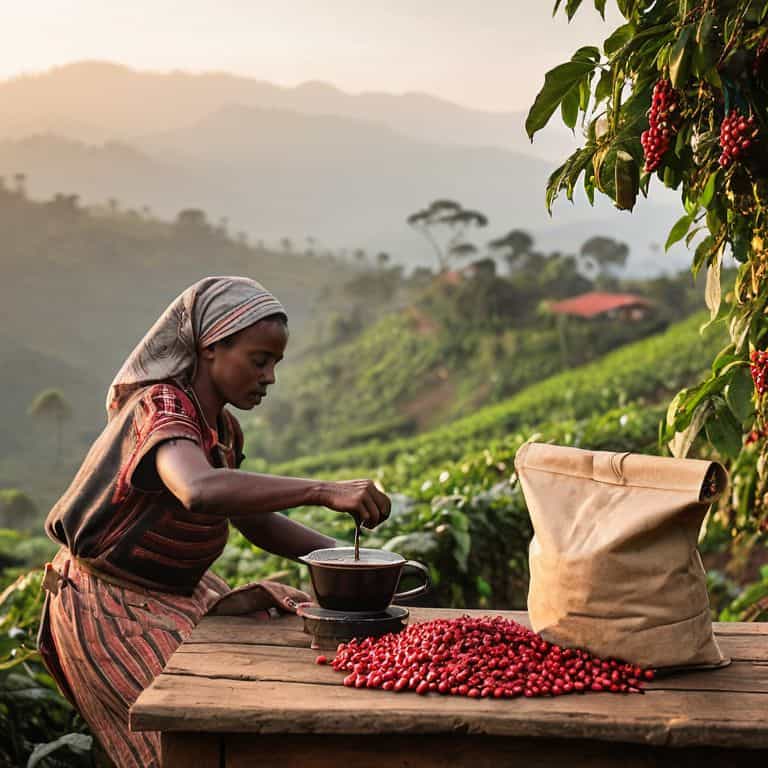
As I opened the bag of these meticulously selected coffee beans, I was immediately struck by the aroma that wafted out, reminiscent of the high-altitude farms in Ethiopia where I’ve had the privilege of working. The bean quality was evident, with each cherry carefully hand-picked and processed to bring out the unique characteristics of the region. I was excited to see how these beans would perform in a French press, given their reputation for producing a rich, full-bodied cup. The first thing I noticed was the evenness of the roast, a testament to the coffee roasting techniques employed by the producers. This attention to detail is crucial, as it allows the natural flavors of the beans to shine through, whether you’re brewing with a French press or experimenting with coffee beans for espresso.
Key Features in Action

As I delved deeper into the world of these exceptional coffee beans, I was eager to see how they would perform in a French press. The french press coffee ratio is crucial, and I found that a 1:15 to 1:17 ratio brought out the optimal flavors. The beans’ light roast profile allowed for a cleaner, more nuanced extraction, showcasing the single origin coffee benefits of a distinct flavor profile. I was particularly impressed by the beans’ ability to maintain their character even when brewed with a coarser grind, a testament to the skillful coffee roasting techniques employed by the producers.
When comparing these beans to those suited for coffee beans for espresso, I noticed a significant difference in the flavor profile. The French press beans had a more pronounced acidity and a flavor profile that was both complex and balanced. The light roast vs dark roast debate often comes down to personal preference, but in this case, the lighter roast allowed the beans’ natural characteristics to shine. As I sipped the rich, full-bodied brew, I couldn’t help but appreciate the craftsmanship that went into cultivating and processing these extraordinary coffee beans.
Real World Performance
As I delved into the world of these exceptional coffee beans, I was eager to see how they would perform in a real-world setting. I started by experimenting with different french press coffee ratio to find the perfect balance. What I discovered was that a 1:15 to 1:17 ratio brought out the most vibrant flavors. The beans’ ability to showcase their unique characteristics was impressive, whether I was brewing a light roast or a dark roast. I noticed that the light roast vs dark roast debate was almost moot, as both offered distinct and captivating flavor profiles.
In my daily routine, I found that these coffee beans consistently delivered a rich and full-bodied cup. The nuances of the beans shone through, regardless of the brewing method. I even tried using them for coffee beans for espresso, and while they weren’t specifically designed for it, they still managed to produce a respectable shot. What struck me most was the single origin coffee benefits, as each bean told a story of its origin and the careful coffee roasting techniques that had enhanced its natural flavors. The result was a truly immersive coffee experience that transcended mere flavor profiles and invited me to explore the world, one cup at a time.
Comparison With Alternatives
When it comes to brewing with a French press, the right coffee beans can make all the difference. I’ve had the opportunity to experiment with various beans, and I must say, single origin coffee benefits far outweigh those of blends. The distinct flavor profiles that shine through in a single origin coffee are a perfect match for the French press method. In comparison to other brewing methods, such as espresso, which often require coffee beans for espresso with a finer grind, French press allows for a coarser grind and a more nuanced extraction.
In my experience, light roast vs dark roast is a crucial consideration when selecting beans for French press. Lighter roasts tend to bring out the brighter, more acidic notes, while darker roasts produce a richer, fuller-bodied cup. I’ve found that a well-balanced French press coffee ratio is essential to bringing out the optimal flavors in the beans. By comparing different roasting techniques and flavor profiles, I’ve developed a deep appreciation for the unique characteristics of each bean, and I believe that this knowledge is essential in selecting the perfect coffee beans for French press.
Who Is This Product for
As I reflect on the coffee beans I’ve selected for French press, I realize that they’re ideal for coffee connoisseurs who appreciate the nuances of single origin coffee benefits. These beans are perfect for those who enjoy experimenting with light roast vs dark roast to find their perfect balance. If you’re someone who values the unique characteristics of coffee from a specific region, you’ll love the flavor profiles that these beans have to offer. Whether you’re a fan of African, Latin American, or Asian coffees, there’s a bean that will suit your taste preferences.
In terms of coffee roasting techniques, I’ve found that these beans respond well to a medium roast, which brings out the optimal balance of acidity and body. This makes them suitable for those who enjoy a french press coffee ratio that’s a bit stronger than usual. While they may not be the best fit for coffee beans for espresso, they’re perfect for those who want to savor the flavors of their coffee in a more relaxed setting. If you’re looking to elevate your coffee game and appreciate the coffee and flavor profiles that these beans have to offer, then this product is definitely for you.
Value for Money Final Verdict
When it comes to value for money, I believe that the true test of a coffee bean’s worth lies in its ability to consistently deliver a rich and satisfying flavor profile. Single origin coffee benefits are numerous, but perhaps the most significant is the unique character that each region imparts to the beans. In the case of these coffee beans, I’ve found that the light roast vs dark roast debate is almost moot, as the optimal roast level is the one that brings out the inherent flavors of the bean. By using a french press coffee ratio of 1:15, I’ve been able to coax out the full range of flavors in these beans, from subtle fruit notes to deep, smoky undertones. Ultimately, the value of these coffee beans lies in their ability to transport me to the rolling hills and sun-kissed farms where they were grown, and for that, I believe they are well worth the investment. As I reflect on my experience with these beans, I’m reminded of the importance of coffee roasting techniques in bringing out the full potential of each batch, and I’m excited to continue exploring the world of coffee, one bean at a time.
Unlocking the Perfect Cup: 5 Essential Tips for Choosing the Best Coffee Beans for French Press
- Look for beans with distinct terroir notes, as they tend to shine in French press brewing, highlighting the unique characteristics of the soil and climate in which they were grown
- Opt for single-origin beans, as they offer a more nuanced and complex flavor profile compared to blends, allowing you to truly experience the essence of the coffee’s origin
- Choose beans with a medium to dark roast level, as they provide a richer, more full-bodied flavor that complements the French press method, bringing out the deepest notes of the coffee
- Consider the processing method, with naturally processed beans often producing a fruitier, more full-bodied cup and washed beans yielding a cleaner, brighter flavor, both of which can be exquisite in French press
- Experiment with beans from various regions, such as Ethiopia, Colombia, or Brazil, to discover the diverse flavor profiles and aromas that each has to offer, and find the perfect match for your French press brewing style
Key Takeaways for the Best Coffee Beans for French Press
When it comes to French press, I’ve found that single-origin beans with distinct flavor profiles, such as those from Ethiopian highlands or Colombian farms, truly shine and offer an unparalleled coffee experience.
The processing method, whether it’s washed or natural, plays a significant role in the final flavor of the coffee, with washed beans often presenting cleaner, brighter notes and natural beans offering fruity, complex flavors.
Ultimately, the best coffee beans for French press are those that tell a story of their origin, from the soil and altitude to the careful harvesting and processing, inviting you to appreciate the journey of the bean from farm to cup.
The Heart of French Press
The best coffee beans for French press are not just about flavor profiles, but about the terroir, the people, and the passion behind each cherry – it’s a sensory journey that unfolds with every pour, connecting us to the earth and the hands that nurtured it.
Samuel Jones
The Final Verdict
As I reflect on my journey to find the best coffee beans for French press, I’m reminded that the perfect cup is a balance of terroir, processing method, and roast level. The beans I’ve reviewed have their strengths and weaknesses, but ultimately, the decision comes down to personal taste. For those seeking a balanced flavor profile with notes of chocolate and fruit, I’ve found that beans from the Ethiopian highlands are a great choice. However, for a more bold and smoky flavor, beans from Brazil or Colombia might be a better fit.
If you’re a coffee connoisseur looking to elevate your French press game, I highly recommend exploring single-origin beans from various regions. However, if you’re a casual coffee drinker who prioritizes convenience over nuance, you might want to stick with a blend. For the adventurous types who appreciate the complexity of coffee, I say take the leap and try something new – your taste buds will thank you. With the right beans, your French press can become a gateway to a world of flavors.
Frequently Asked Questions
What makes Ethiopian Yirgacheffe coffee beans particularly well-suited for French press brewing?
Ethiopian Yirgacheffe coffee beans are a dream for French press, with their delicate floral and citrus notes thriving in the immersive brewing method. The region’s high altitude and rich soil impart a distinctive character to each cherry, making every cup a masterclass in nuanced flavor and aroma.
How does the processing method of the coffee beans impact the flavor profile in a French press?
The processing method is where the magic happens, my friend. Washed beans tend to be brighter, with cleaner acidity, while naturals are fruitier and more full-bodied. This difference drastically impacts the flavor profile in a French press, as the immersion brewing method brings out the unique characteristics of each processing style.
Are there any specific roast levels that are optimal for bringing out the unique characteristics of single-origin coffee beans in a French press?
For single-origin coffees, I find that lighter roasts, around City to City+, allow the nuanced flavors of the cherries to shine. This roast level preserves the coffee’s inherent acidity and fruit notes, creating a vibrant and distinctive cup when brewed in a French press.
